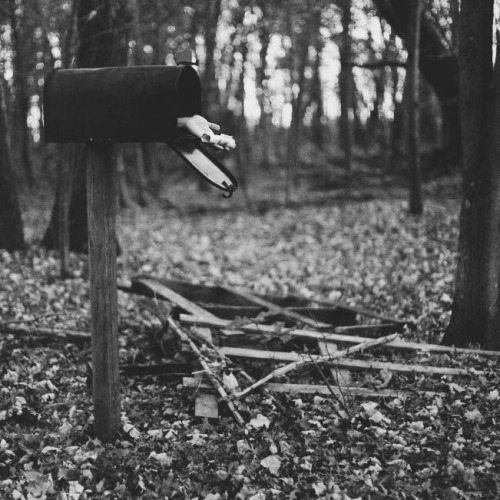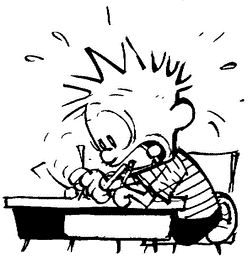Today is the last day of NaNoWriMo. After midnight tonight, any panicked tendency to ignore all responsibilities in the face of impending word counts will be dissolved. Excessive nail biting will abate. Caffeine withdrawals will begin. In short - life can finally return to normal.
If a writer's life is ever normal.
Which brings up the interesting point: how much normal do you want back in your life? Non-writing normalcy, I mean. The kind of normal that gears up and shuts your creative pursuits out.
Yes, I know we're all exhausted at this point, and desperately need a break from writing, at least for a little bit. There are great advantages to a cold read, after all, especially before editing. But this past month of stretching beyond our writing boundaries has really shown WriMos what they're made of, and what they can accomplish, when they jealously guard that daily writing time against countless distractions and demands for our time. Yet we fought off those distractions for a whole month, which begs the question:
Why do this only one month out of the year?
The answer, as you might expect, is multilayered.
Let's be honest: When you're in the throes of NaNoWriMo, many things fall by the wayside. To squeeze out that minimum 1667 words a day - or more - we have blocked out, dropped, minimized, ignored, or pushed aside many things, and possibly people. Then November 30th rolls around and you realize - as I have - that I am not only exhausted, but there's a pile of responsibility awaiting my attention. There are semester exams to write and papers to grade, and mounting requests for social time from friends and family who are by now feeling a bit neglected.
In that sense, it's a good thing that NaNoWriMo is only once a year. Responsibilities must be dealt with. Family and friends should be cherished and supported while they are among us. We (and I speak to myself most of all, here) should never let our creative pursuits so consume us that we forget to live.
The Flipside: We obviously can't manage insane word counts every day of our lives; heck, most of us must tap into our inner lunatic just to manage it during NaNoWriMo. But experience has taught me that if I don't give steady attention to my writing every day (or nearly so), I lose steam. Forget my goals. Lose the thread of my characters and their lives. Forget what prompted me to write in the first place.
My writer's group has come up with a very simple solution to combat the Non-NaNo Doldrums. Some of this is almost juvenile in application, but that's OK. It's what gets the job done.
STEP ONE: 500 words a day. So we can't do a crazy word count every day - but we can manage a small one most days. 500 words is just shy of one typed page, if you use the standard 12 pt font, TNR, single space format. It's just long enough to push you, yet short enough to not be overwhelming. And after a month of striving for 1667+ daily word counts, 500 words is like a walk in the park.
STEP TWO: Annoy yourself with reminders. This is where the juvenile part kicks in. Find some way of branding your environment with reminders of your 500 word goal. In the Y5 (my writer's group), we do this by writing 500! on our non-dominant hand just above the thumb in black Sharpie, so the reminder is always staring us in the face, no matter what we're doing. I've also left post-it note reminders for myself on my bathroom mirror, and programmed alerts on my cell phone for different times during the week.
STEP THREE: Tattle on yourself. If all you do is write post-it notes to yourself for motivation, you won't get very far. The 500! on my hand, I've found, has worked best (at least for me). It not only serves as a constant reminder, but it makes other people ask you what the 500 is all about, and so you're forced to explain yourself. Also, having the Y5 hold me accountable is great. We do this through email and texting, not to mention our writer's meetings during which every member gives an account of their writing progress since the last get-together. When people hold you accountable, you're much more likely to be faithful in the details.
In short:
* Please - take a break from your writing, at least for a few days.
* Pick a day to start back at the 500/day pace.
* Aim for 500/day about 4x per week.
* Be flexible with your goals. Make time for life as opportunities come.
If you need to edit? Do that too; only maybe count the time spent instead of words counted. If you know you need to "cut the fluff", then count whether your manuscript was diminished by 500 words. Either way - it's progress; and progress is what we need to get the job done - from frantic fly-by-the-seat-of-your-pants wordmongering to a thoughtfully managed, carefully edited and polished manuscript.
What about you? When do you plan to return to your NaNo project?
What's your wordmongering plan during the other 11 months of the year?







































